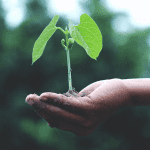Africa Must Take Charge of its Own Development Agenda: Here’s How Impact Investors Can Support It
Economies across Africa are facing some serious headwinds, from rising inflation and regional instability to a lack of foreign currency and the high cost of capital. According to McKinsey, Africa’s growth slowed from 2010-2019, and while the continent’s GDP increased faster than its population in those years, the total number of Africans living in poverty increased by 30 million. Since 2020, economic growth has been further hampered by the pandemic, the war in Ukraine and other global crises. But for investors looking to make a difference while also making a profit, the continent — with its young, fast-growing and rapidly urbanising workforce and abundant natural resources — still offers significant opportunities.
Over the next five years, a third of impact investors plan to increase allocations to sub-Saharan Africa, according to the Global Impact Investing Network (GIIN)’s 2023 GIINSIGHT series, which is based on data captured from 308 impact investors globally. This reflects ongoing investor interest in these emerging economies. This is positive for the region, since sub-Saharan Africa is already one of the largest beneficiaries of impact investing: The GIINSIGHT report, a barometer for the broader impact investing market, noted that the continent received over $25 million of survey respondents’ Assets Under Management in 2022 (an increase of over 94% from 2017) — more than the $19 million reported in Europe, and the $18 million reported in East Asia.
Impact capital could prove decisive in addressing the range of challenges currently bedeviling the continent, from inadequate infrastructure to limited access to quality education, healthcare and energy. To take just one example of these issues, 43% of the continent (roughly 600 million people) does not have electricity.
Impact Capital isn’t a Silver Bullet: The Need for Cross-Sector Partnership
However, an influx of capital alone will not be a silver bullet that solves Africa’s multifaceted development challenges. To ensure that lives and livelihoods are decisively changed for the better, African nations need to be deliberate in taking charge of their own destinies. And this starts with better coordination between African governments and the different sectors and communities within these countries. Specifically, by forming strategic partnerships, sharing lessons and aligning focus, African stakeholders — including governments, businesses, international partners and the development sector — can together reignite growth and, in alignment with the African Union’s Agenda 2063, build “the Africa We Want.”
Governments’ involvement will be critical in driving this, and there is also an important role that the private sector in general, and the investment community in particular, could play. It was with this in mind that the Africa Impact Investing Group (AIIG) was launched at the inaugural Africa Impact Summit in Cape Town last July. The AIIG — a regional collaboration of African National Advisory Boards of the Global Steering Group for Impact Investing in Ghana, Nigeria, South Africa and Zambia, along with impact investing taskforces from Burkina Faso, Côte d’Ivoire, Egypt, Kenya, Mauritius and Senegal — will serve as a platform for collaboration, learning and advocacy, with the goal of fostering a thriving impact investing ecosystem in Africa.
This new organisation could be a game-changer for African investment. The AIIG will work collaboratively to build awareness around impact investing, mobilise various sources of capital and lobby for enabling policy support. It will also, crucially, seek to develop a pipeline of investment-ready opportunities in key sectors that have the potential to create significant impact, such as agriculture, energy, health, education and financial services. To feed the increased appetite for African investments among impact investors, it will be vital to provide them with the right menu of options.
Leveraging Dialogue and Research to Advance Africa’s Development
Of course, investment priorities will vary between countries and regions — Africa is a vast and diverse continent, after all. Thus, dialogue as a path to partnership will be important to identify the challenges and opportunities on the ground in each context. This should involve a range of stakeholders — from government and business leaders to civil society and non-governmental organisations.
Research will also be a key element of the AIIG and its partners’ work, taking this process further by pinpointing the reasons behind any bottlenecks and barriers, and finding solutions to them. This type of approach has generated results in other contexts: For instance, the recently ratified African Continental Free Trade Area emerged out of a collaborative process initiated by the African Union that identified lagging intraregional trade as a problem that needed to be addressed.
Research could also identify pockets of excellence that could serve as knowledge resources for the broader region, with certain countries leading the way in areas where they’ve identified and implemented successful solutions to development challenges. For example, South Africa has a strong regulatory environment, with solid capital and financial markets, and could play a role in helping other markets on the continent develop and progress. Kenya, meanwhile, is adept at attracting foreign investment. Understanding the reasons behind these relative strengths would help inform and support the efforts of other countries, inspiring them to leverage similar approaches for the benefit of their own business and investing ecosystems.
How Impact Investors Can Amplify the Work of African Social Innovators
Informed by dialogue and research, we Africans can work together to galvanise the partnerships we need to move the continent towards a brighter future. Africans are a resilient and resourceful people, and we are starting to see a surge of creativity around solving some of the continent’s challenges. Young people in particular are mobilising to hold governments accountable and change outdated systems. Meanwhile, social innovators and social justice activists are pouring their energy and ingenuity into building their communities and countries. And small and medium-sized enterprises are stepping forward in ever greater numbers to solve key challenges in pioneering and dynamic ways.
To take just one example of this homegrown innovation, AQUAtap Oasis is a pan-African collaborative partnership program in the Democratic Republic of Congo that is aiming to install 500 water centres over five years that will provide clean drinking water to over 1.2 million people. Businesses and initiatives of this nature are emerging across the continent, producing an ever-growing number of rewarding and impactful outcomes. If successfully channeled, impact capital could result in a multiplier effect that amplifies the work of these countless social innovators, changing the lives of citizens throughout the region while supporting these vital green shoots.
But for this process to truly transform the continent, Africans need to take charge of their own development agenda. Although the outlook for sub-Saharan Africa has improved since the pandemic, it remains in a vulnerable position, especially as global geopolitical tensions rise. By pulling together through collaborations like the AIIG, we can ensure that impact investors globally see the advantages that Africa offers even in volatile times, providing them with confidence that they will get the returns they seek while helping to improve lives.
Shiluba Mawela is a managing partner at Tshiamo Impact Partners.
Photo credit: Clement Eastwood
- Categories
- Investing



